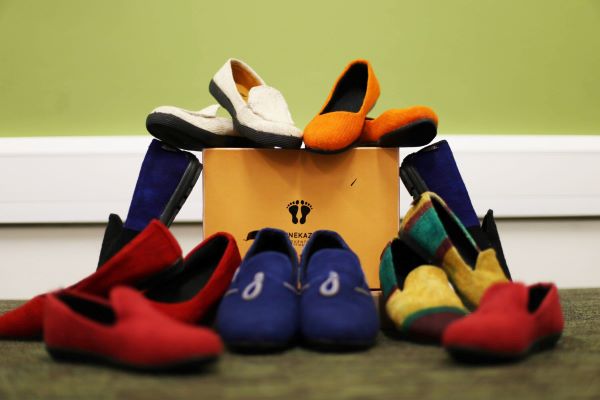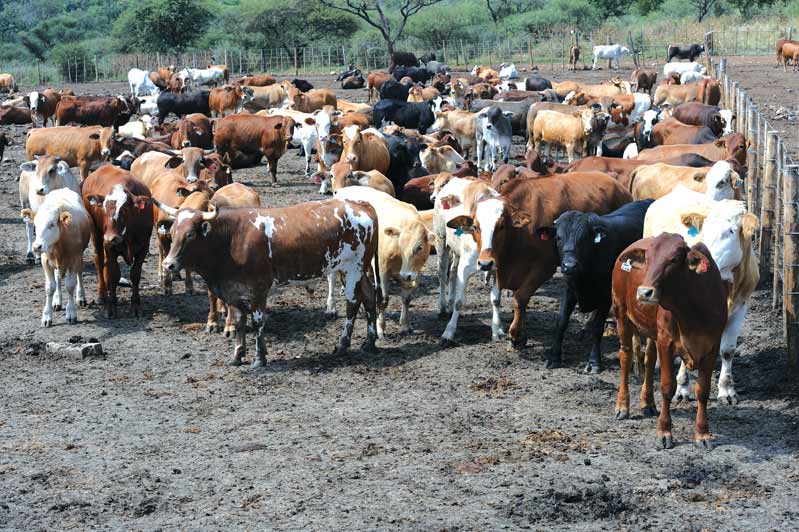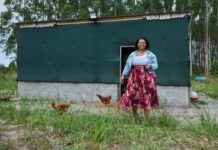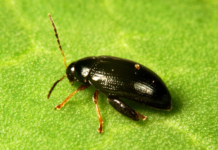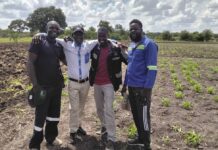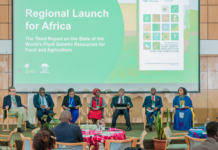In Kenya alone it is estimated that about 80,000 tonnes of pineapple wastes that include the leaves is produced monthly. The wastes are either eliminated through burning or decomposition, releasing tonnes of carbon dioxide and methane gas, which are harmful greenhouse gases blamed on climate change.
However, as the global fashion industry entrepreneurs are coming up with innovative ideas aiming at utilising food wastes into making valuable products to relieve the environment of much stress, Kenya has not been left lagging.
Pine Kazi, a social business venture in Kenya has joined the global fashion industry bandwagon that, in the wake of climate change, is turning environmental wastes into eco-friendly products to suit the needs of the emerging eco conscious millennial customers.
In this, the startup which was started in 2019 by then a young team of students; Olivia Awuor, Angela Nzomo, Mike Langat, and Gilbert Kiplangat, from African Nazarene University converts pineapple leaves and recycled rubber into fashionable footwear making it the first enterprise in Kenya to make eco-friendly shoes even from pineapple leaves.
How it started
According to Ms. Olivia Awuor, Pine Kazi Chief Executive Officer, the idea came when the government banned plastic bags and there was need for alternatives to make the bags.
In their quest to build a new bag, they discovered that they could use the fibers from pineapple leaves to weave fabric but they would soon abandon bags when they realized that it is a highly regulated industry.
They turned to shoes because the government has made local shoe production a national priority to reduce on its footwear imports, the country’s most textile import.
“It was not easy to come up with the first prototype that saw us work hard by our hands for five months to actualize the idea and once we made the first shoe we were all exited, I tell you, it was tears of joy,” said Awuor.
Since then the group has been pushing hard to produce more shoes which started gaining attention as a result of their top notch design and colour that make them appealing in the fashion industry.
While Angela and Olivia are passionate about art and design for shoes, Mike and Gilbert are passionate about technology and finance operations respectively.
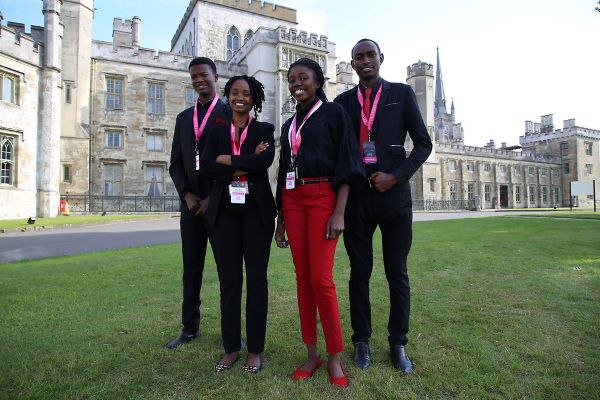
Embracing the rich Kenyan culture
Pine Kazi shoes have got brand names such as Swara, Ndovu, Tembo, Simba, Nyati, and Chui (Kiswahili names for some of the Kenya’s famous wild animals) being a deliberate decision by the founders to have their products reflect the rich Kenyan heritage.
“Even moving forward, when we will diversify into other lines of products, we aspire to adopt names that tell our country’s history and culture,” said Awuor.
This is also reflected in the company’s name Pine Kazi where Pine comes from the word pineapples and Kazi is Kenyan Swahili word for work.
Currently, production capacity is still low at 10 pairs of shoes a day since the entre process including the dying and the weaving of the shoes is done by hand by around five skilled artisans.
We are looking into expanding our production capacity from 10 to 1,000 pairs of shoes a day depending on demand once we find machines to help speed up the work,” said the young CEO.
So far most sales have been done locally with special orders done by customers on the company’s website, the shoes are made then delivered.
According to Nzomo, the company is currently privileged to work on a special order by the Kenya Airways (KQ) to deliver on a customized brand of shoes for the company’s staff.
“This is one of our latest big and special orders currently making us busy daily because we want to deliver the best to our carrier line personnel,” she said.
Pineapple leaves, the company’s main raw materialis sourced form Delmonte Del Monte Kenya Limited which grows the fruit in large scale for its juice making business.
Accolades
Pine Kazi was the winner of the 2019 Hult prize Amman Regional Competition and 2022 Fashionomics Africa competition by African Development Bank (AfDB) Group among others.


